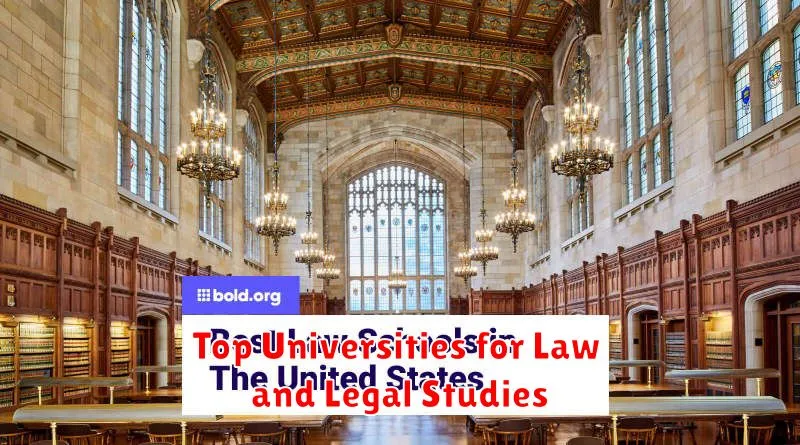Choosing the right university for law and legal studies is a pivotal decision for aspiring legal professionals. A top university can provide the foundational knowledge, practical skills, and networking opportunities essential for success in this challenging and rewarding field. This article explores some of the top universities for law and legal studies worldwide, examining their esteemed programs, distinguished faculty, and resources available to students pursuing a career in law.
These institutions offer a range of programs, from undergraduate legal studies to advanced law degrees, catering to diverse interests within the legal field. Whether you’re interested in corporate law, criminal justice, international law, or human rights, finding the right university is key to building a strong foundation for your legal career. The following ranking considers factors such as academic reputation, faculty expertise, research output, and student outcomes to identify the top universities for law and legal studies globally.
Studying Law in Tier 1 Countries
Tier 1 countries offer some of the most prestigious and competitive law programs globally. These countries often boast a rich legal history, highly ranked universities, and excellent career prospects for graduates. Studying in a Tier 1 country can significantly enhance a law student’s global perspective and open doors to international legal practice.
Factors contributing to a country’s Tier 1 status include the quality of legal education, research output of institutions, reputation among legal professionals, and influence on international legal discourse. Students considering pursuing legal studies in these countries should be prepared for a rigorous academic environment and a highly selective admissions process.
Benefits of studying law in a Tier 1 country often include access to renowned faculty, extensive research resources, opportunities for international exchange programs, and a strong alumni network that can aid in career development. Graduates from these programs are often sought after by top law firms, international organizations, and government agencies worldwide.
How to Compare Global Law Schools
Comparing law schools across different countries requires careful consideration of various factors. Accreditation and bar passage rates are crucial indicators of quality. Research whether the school’s credentials are recognized in your intended jurisdiction.
Curriculum specialization is another key aspect. Some schools excel in international law, while others focus on constitutional or corporate law. Align your career goals with the school’s strengths. Faculty expertise and research output are important considerations, reflecting the quality of teaching and scholarship.
Global rankings can provide a general overview but should not be the sole basis for comparison. Consider the methodologies employed and the weighting of different factors. Location and cultural environment also influence the learning experience. Think about the legal system and cultural context you wish to immerse yourself in.
Finally, practical training opportunities, such as clinics, internships, and moot court competitions, enhance practical skills and career prospects. Thorough research into these factors will aid you in selecting the law school that best suits your individual needs and aspirations.
Harvard Law School
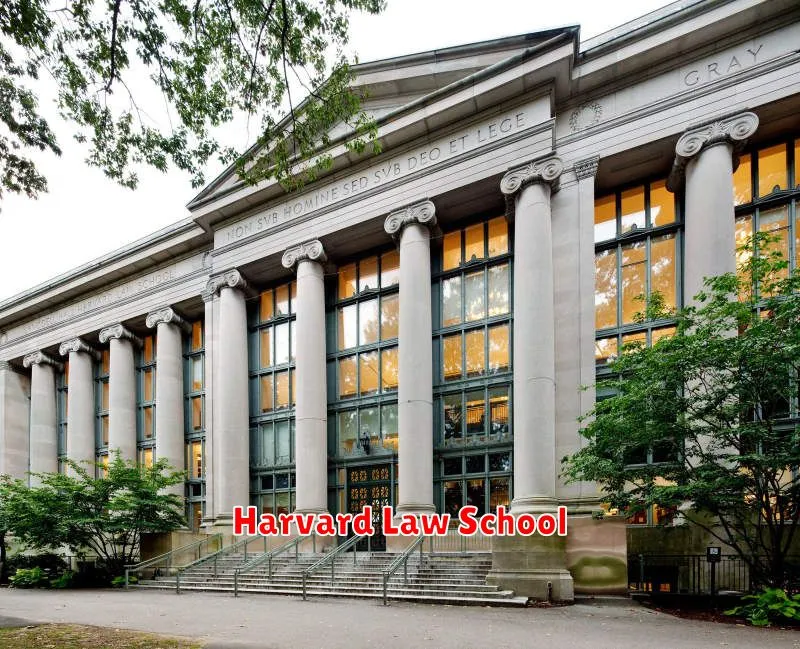
Harvard Law School, located in Cambridge, Massachusetts, is consistently ranked among the top law schools in the world. Established in 1817, it is the oldest continuously operating law school in the United States.
The school is renowned for its influential faculty, comprised of leading legal scholars and practitioners. Its rigorous curriculum covers a broad range of legal fields, providing students with a comprehensive legal education.
Harvard Law School graduates have gone on to hold prominent positions in government, judiciary, public interest organizations, and private practice across the globe. The school’s extensive alumni network offers significant career opportunities and support.
Admission to Harvard Law School is highly competitive, with a strong emphasis placed on academic excellence, LSAT scores, and personal qualities demonstrated through essays and recommendations.
University of Oxford Faculty of Law
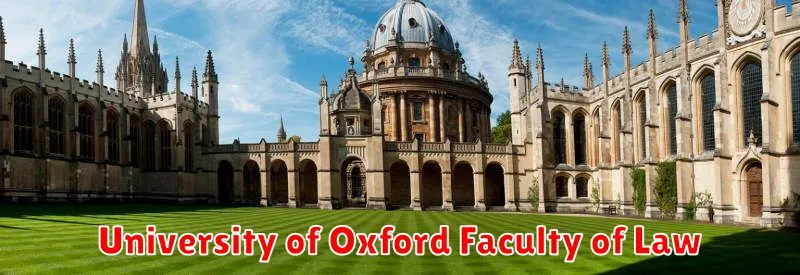
The Faculty of Law at the University of Oxford holds a prestigious position globally, consistently ranked among the top law schools in the world. It offers a comprehensive range of programs, including the Bachelor of Civil Law (BCL), Magister Juris (MJur), and Doctor of Philosophy (DPhil).
Students benefit from a rich academic tradition and a distinguished faculty composed of leading legal scholars. The teaching approach emphasizes critical thinking and rigorous analysis, fostering intellectual development and preparing students for diverse legal careers.
Research at Oxford’s law faculty is highly regarded and covers a broad spectrum of legal fields, contributing significantly to legal scholarship and influencing policy debates.
The faculty boasts a vibrant intellectual community, with numerous seminars, conferences, and guest lectures providing students with opportunities to engage with contemporary legal issues and interact with prominent legal figures.
Yale Law School
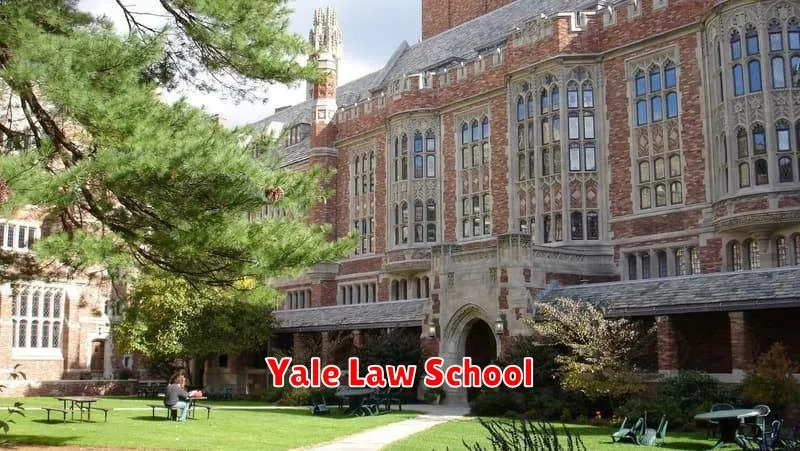
Yale Law School is consistently ranked as one of the top law schools in the United States, and indeed, the world. Located in New Haven, Connecticut, it is renowned for its rigorous academic program and its influence on legal scholarship.
The school’s small size contributes to a close-knit intellectual community. Students benefit from a low student-to-faculty ratio, providing ample opportunities for interaction with leading legal scholars.
Yale Law School graduates have gone on to distinguished careers in a variety of fields, including the judiciary, government, academia, and private practice. Its alumni include Supreme Court justices, prominent legal scholars, and influential figures in public life.
Areas of specialization include constitutional law, corporate law, criminal justice, environmental law, human rights law, international law, and legal history, among others. Yale Law School also boasts a robust clinical program that allows students to gain practical legal experience.
Stanford Law School

Stanford Law School consistently ranks among the top law schools in the United States and the world. Located in the heart of Silicon Valley, it offers a unique environment that fosters innovation and interdisciplinary study. The school’s emphasis on legal scholarship, combined with its proximity to the tech industry, provides students with unparalleled opportunities.
Key strengths include its highly selective admissions process, renowned faculty comprising leading scholars and practitioners, and a diverse curriculum covering a wide range of legal fields. Students benefit from small class sizes, promoting close interaction with faculty and fostering a collaborative learning environment.
Areas of specialization include intellectual property, business law, environmental law, and international law. The school’s location provides unique opportunities for students interested in the intersection of law and technology. Furthermore, Stanford Law School offers a robust clinical program, allowing students to gain practical experience through hands-on legal work.
University of Cambridge Faculty of Law
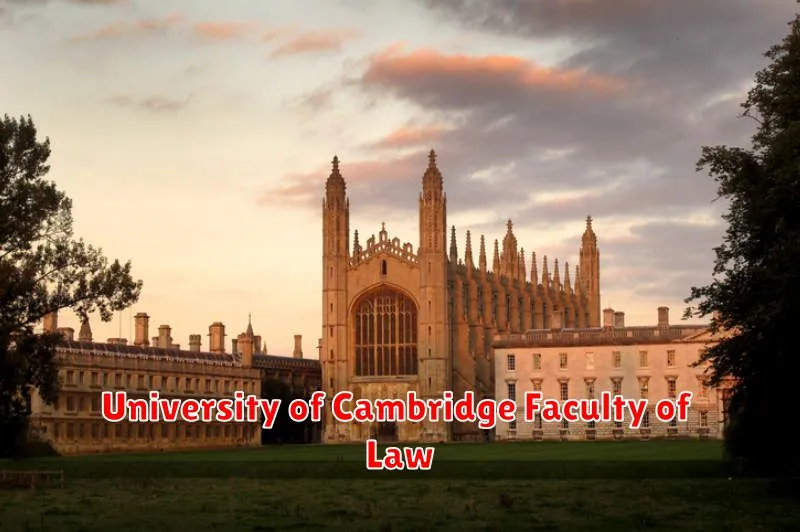
The University of Cambridge Faculty of Law holds a distinguished position among the world’s leading law schools. Renowned for its rich history and commitment to academic excellence, the Faculty provides a rigorous and intellectually stimulating environment.
Cambridge Law offers a comprehensive range of programs, including the LLB, MJur, MPhil, and PhD, attracting a diverse student body from across the globe. The Faculty’s world-class faculty are experts in their respective fields, contributing significantly to legal scholarship and shaping the future of law.
Students benefit from small class sizes and personalized supervisions, fostering close interaction with faculty and encouraging critical thinking. The Squire Law Library, one of the largest legal collections in the United Kingdom, provides invaluable resources for research and study.
A Cambridge legal education emphasizes rigorous legal analysis and independent research, equipping graduates with the skills and knowledge to excel in various legal professions and beyond.
New York University (NYU) School of Law
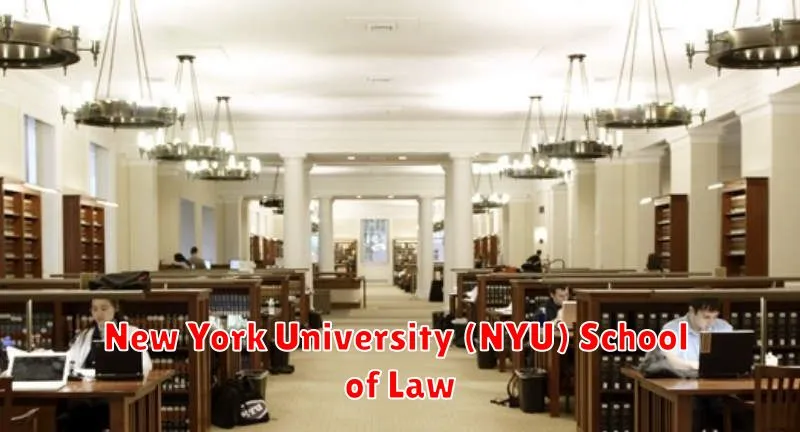
NYU School of Law is a highly-ranked institution located in the heart of Greenwich Village in New York City. It is renowned for its strong focus on international law, public interest law, and tax law.
Students benefit from its prime location, providing unparalleled access to major legal institutions and firms. The school boasts a diverse student body and a distinguished faculty composed of leading scholars and practitioners.
Key Strengths:
- Extensive clinical programs
- Renowned faculty experts
- Global perspective
- Robust career services
University of Melbourne

The University of Melbourne consistently ranks among the top universities globally for law and legal studies. Located in Melbourne, Australia, it offers a comprehensive range of law programs at both undergraduate and postgraduate levels.
Strengths of the Melbourne Law School include its renowned faculty, focus on research excellence, and strong connections with the legal profession. Students benefit from a rigorous curriculum that blends theoretical knowledge with practical skills development.
Key areas of specialization include commercial law, international law, human rights law, and public law. The Juris Doctor (JD) program is highly regarded, equipping graduates with the knowledge and skills to excel in a variety of legal careers.
The university’s location in Melbourne, a vibrant and multicultural city, provides students with a rich learning environment and diverse opportunities for professional networking.
National University of Singapore (NUS) Law
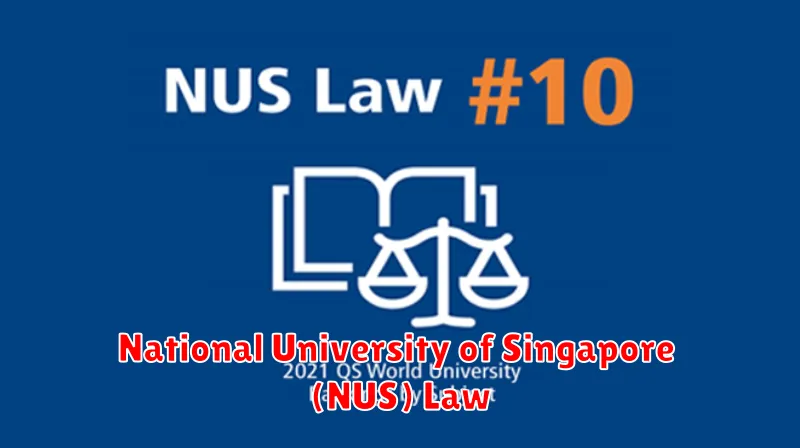
The National University of Singapore (NUS) Faculty of Law is consistently ranked among the top law schools globally. It offers a rigorous curriculum that blends theoretical understanding with practical legal skills. NUS Law is particularly recognized for its strengths in Asian legal studies, offering a unique perspective on international and comparative law.
Students benefit from a distinguished faculty comprised of leading scholars and experienced practitioners. The faculty’s expertise spans diverse areas, including corporate law, international law, criminal law, and intellectual property law.
NUS Law emphasizes experiential learning. Students can engage in moot court competitions, participate in legal clinics, and pursue internships with prominent law firms and international organizations. These opportunities allow students to develop practical skills and gain valuable real-world experience.
University of Toronto Faculty of Law
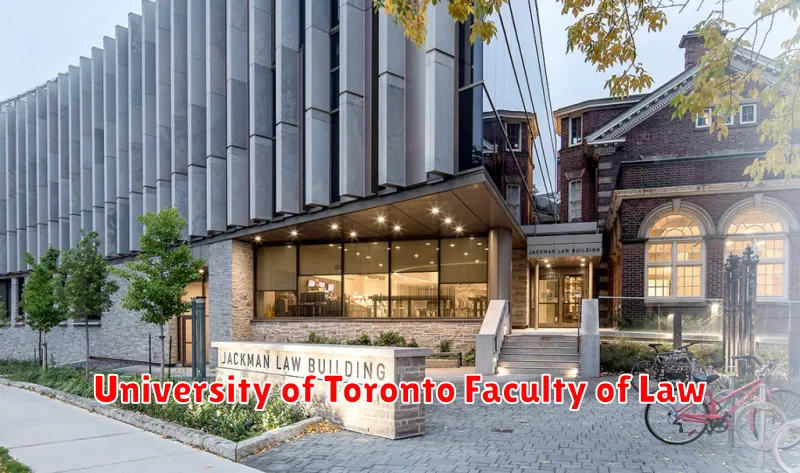
The University of Toronto Faculty of Law consistently ranks among the top law schools globally. Located in the heart of Toronto, it offers a vibrant and intellectually stimulating environment.
Curriculum: The Faculty provides a comprehensive curriculum covering various areas of law, including business law, constitutional law, criminal law, and international law. Students benefit from a combination of theoretical and practical training.
Faculty: The Faculty boasts renowned scholars and experienced practitioners who are leaders in their respective fields. Their expertise enriches the learning experience and provides valuable mentorship opportunities.
Research: The Faculty is a hub for cutting-edge legal research. Faculty members and students contribute to scholarly discourse and address pressing legal challenges through various research initiatives and centers.

